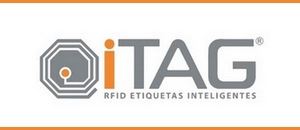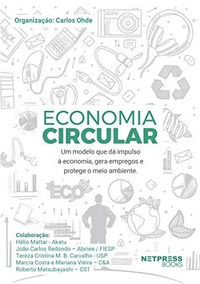Michael Neuwirth
The American Sustainable Business Network (ASBN) and the business organizations it represents applauded the Securities & Exchange Commission’s (SEC’s) proposed rule that would enhance and standardize registrants’ climate-related disclosures for investors. The enhancement and standardization of climate-related disclosures is overdue and urgently needed to help investors and American businesses compete effectively in an economy that needs to move faster than it is today towards decarbonization.
Under today’s governance, businesses and investors working to decrease or eliminate their impact on the climate crisis do not have a level playing field when it comes to reporting and assessing climate-related topics and validating suitable investment choices. Investors and business owners, and consequently their impact on the climate crisis, will benefit from greater transparency and accountability proposed by the SEC. Regarding the impact on packaging, I expect that if and when these rules are implemented there will increase pressure on companies to reduce or eliminate unnecessary packaging as a way to reduce their climate impact within all scopes of operation.

Under the SEC’s proposal, U.S. companies would be required to have some of their carbon emissions included in regulatory filings. Scopes 1 and 2 greenhouse gas (GHG) emissions will need to be included in annual filings, such as 10-Ks. Additionally, indirect emissions will need to be included from upstream and downstream activities (scope 3), if material, or if the company has set a GHG emissions target or goal that includes scope 3 emissions, in absolute terms, not including offsets, and in terms of intensity. This type of Information about specific emissions is not standardized, if it is currently disclosed at all, and the SEC’s proposal for standardization is also helpful to improve transparency and verification. ASBN believes all three scopes are key, particularly scope 3, because they are the biggest and broadest components of a company’s impact on climate change for most sectors of industry.
“ASBN will be issuing its own comment as well as encouraging its members and network to provide detailed input on the proposal and comment directly. Disclosure will support all companies being rightfully rewarded in the marketplace that perform authentically on ESG. We look forward to requirements being highly inclusive to allow all businesses, especially SMEs, to improve transparency and accountability throughout their value chains,” said Ali-Reza Vahabzadeh, EVP, Membership of the American Sustainable Business Network and ESG & Corporate Transparency Working Group leader.
“Investors and businesses need and deserve as complete a picture as possible of risks and opportunities, particularly as it relates to material issues that can span generations such as climate impact,” said Valerie Red-Horse Mohl, co-chair of ASBN and CFO of East Bay Community Foundation. “Our climate crisis is fused with racial and gender inequity and the wealth gap and demands transparency; all people and the environment will benefit from requiring it as part of our assessments.”
“Corporate Directors owe fiduciary duties of loyalty, care, good faith, confidentiality, prudence, and disclosure to their corporate shareholders. The duty of care requires directors to inform themselves prior to making a business decision. The SEC’s proposed rules to require companies to disclose climate related risks positions directors to fulfill their fiduciary duty of care as required under law given the vast amount of information that shows corporate transparency is beneficial to a corporation’s bottom line. The proposed rules are a good business decision that ASBN will advocate for on Capitol Hill and beyond,” said Maritza T. Adonis, VP, Policy, Advocacy, and Government Affairs for ASBN.
ASBN has been working to address serious and growing concerns about business activities which are unaccounted for, or currently escape disclosure as negative externalities, which at this point also do not affect the P&L or balance sheet of corporations. The proposed standards will also help to reduce greenwashing. Companies of all types that are advertising, marketing, drafting ESG statements, or disclosing information will be required to pay extremely close attention to the language used in all of these types of documents, or run the risk of SEC scrutiny.

Quotes from ASBN members and partner organizations:
“Climate change is more material to investors now than ever,” said Natasha Lamb, Managing Partner at Arjuna Capital. “Over $57 trillion in investor assets support a goal of net-zero-emissions portfolios. In order to accomplish this goal and avoid material climate risks, transparency from portfolio companies is key. Not only will the SEC’s climate disclosure rule benefit investors who seek to avoid climate risk, it will press companies to better manage their own risk through a new level of accountability.”
“For investment firm’s to effectively lead and finance solutions to climate change, integrity and transparency must be core to their operations and the industry. Steps toward greater transparency and accountability will ultimately benefit people, the planet and business,” said Ron Gonen, CEO & Founder of Closed Loop Partners, a circular economy-focused investment firm and innovation center.
“Etsy is a longtime leader in climate disclosures and has been vocal in encouraging other companies to take similar steps. We view today’s SEC’s proposal as a promising step towards creating unified and organized policies and guidance for corporate climate disclosures, including Scope 3 greenhouse gas emissions. Etsy has long believed investors desire consistent and reliable ESG metrics and has voluntarily included our Scope 1, 2, and 3 emissions in publicly filed financial reporting for the last four years,” said Rachel Glaser, Etsy Chief Financial Officer.
“Standardizing climate change disclosure language in clear layman terms is key not only in helping investors understand possible risks but what a company needs to do to mitigate those risks. It also allows investors to press at-risk companies for change as not addressing those risks could have a detrimental impact on performance,” said Timothy Yee of Green Retirement, Inc.
“We, along with many other investors, applaud the SEC for formally moving forward on expanding climate disclosures. Today’s proposed rule is a very strong step in the right direction. The depth of investor comments provided to the SEC last spring show the keen interest investors have in mandatory, standardized climate disclosures, and the need that we as investors have for this information,” said Elizabeth Levy, Head of ESG Strategy and Portfolio Manager at Trillium Asset Management, LLC. “While we welcome this proposed rule, to provide the most utility to investors, a complete set of disclosures needs to include scope 3 emissions disclosure particularly from the most impacted industries, including fossil fuels and finance, regardless of size and whether they consider scope 3 emissions material or not.”
ASBN will continue to advocate for stronger and more regulated corporate transparency and ESG disclosure and will be monitoring and commenting on the issues that relate to these matters.
Michael Neuwirth is the Chief Communications Officer at American Sustainable Business Network (ASBN)



















